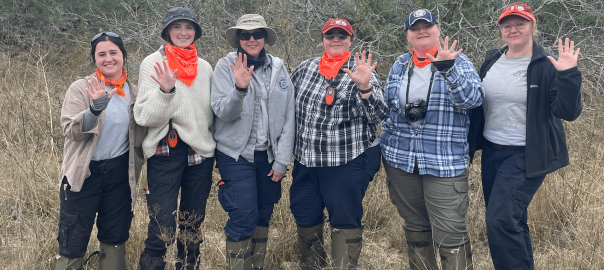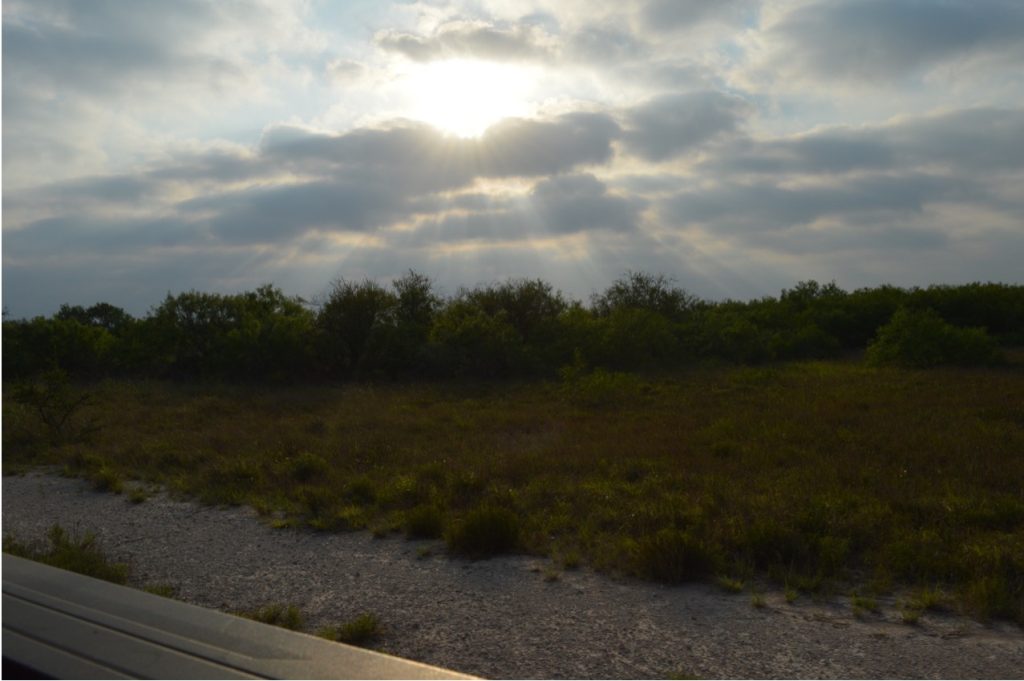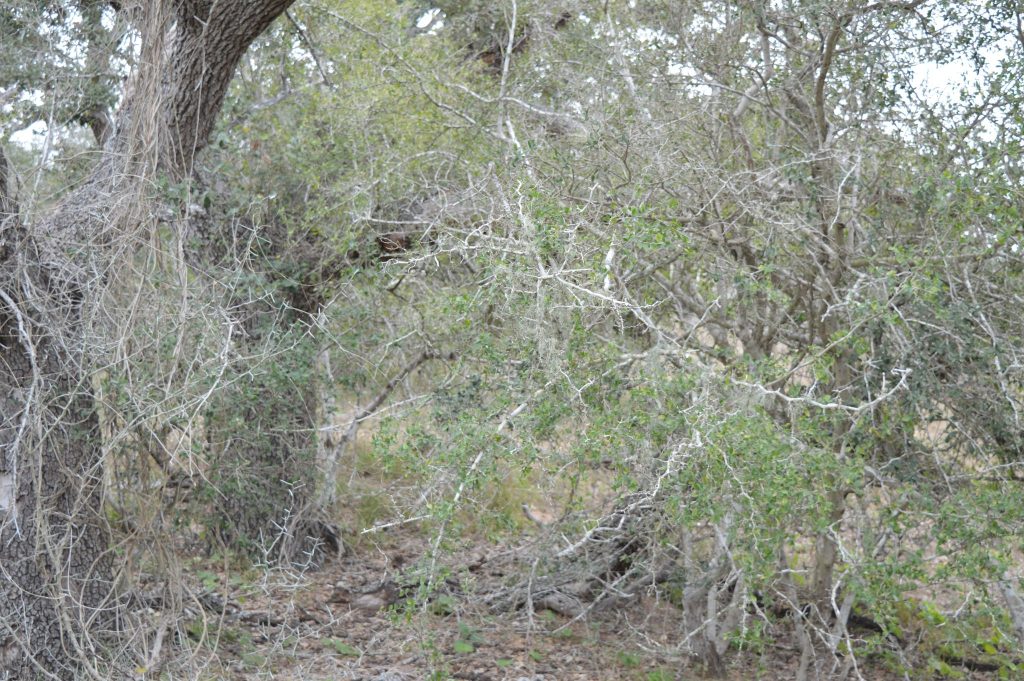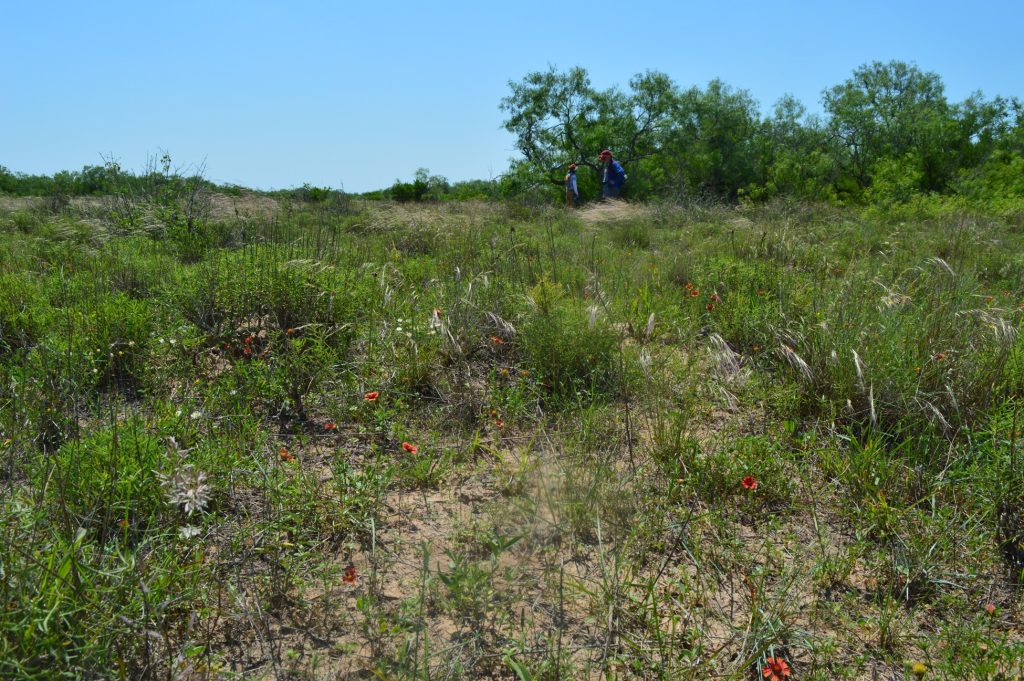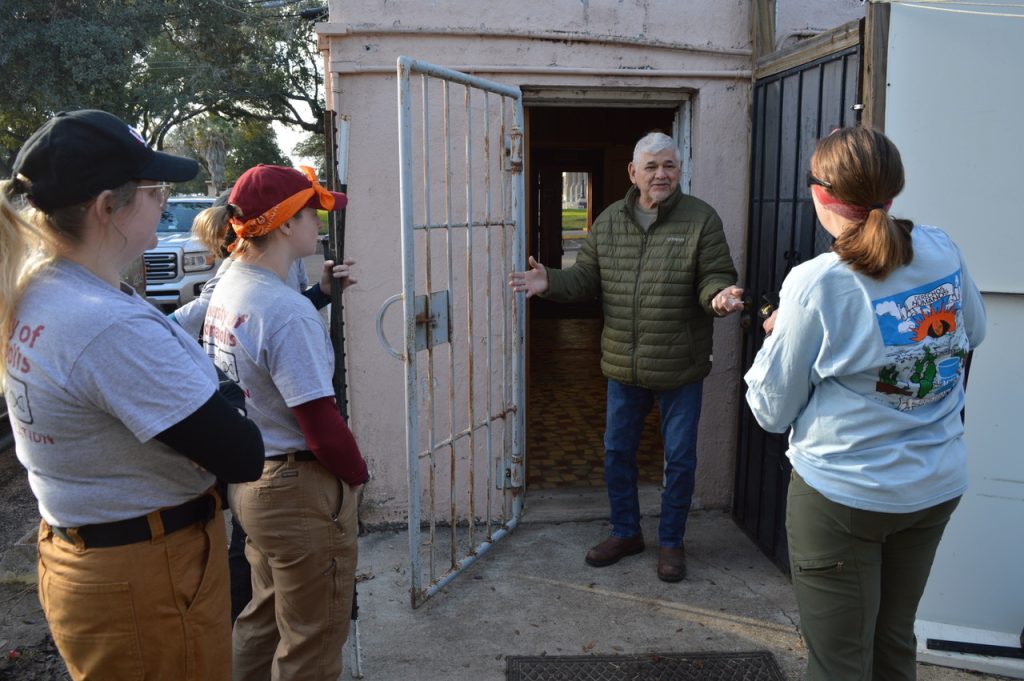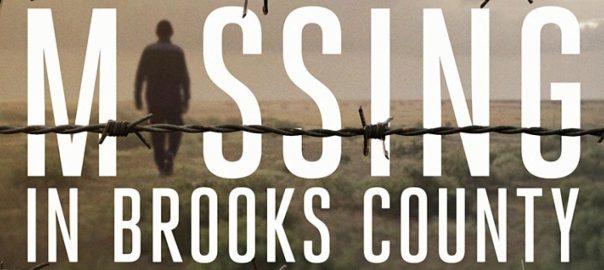Walking up this morning was hard. Although we are a bit sore and tired, the idea that it was the last day (and that once we were up and out) meant that our trip was coming to an end.
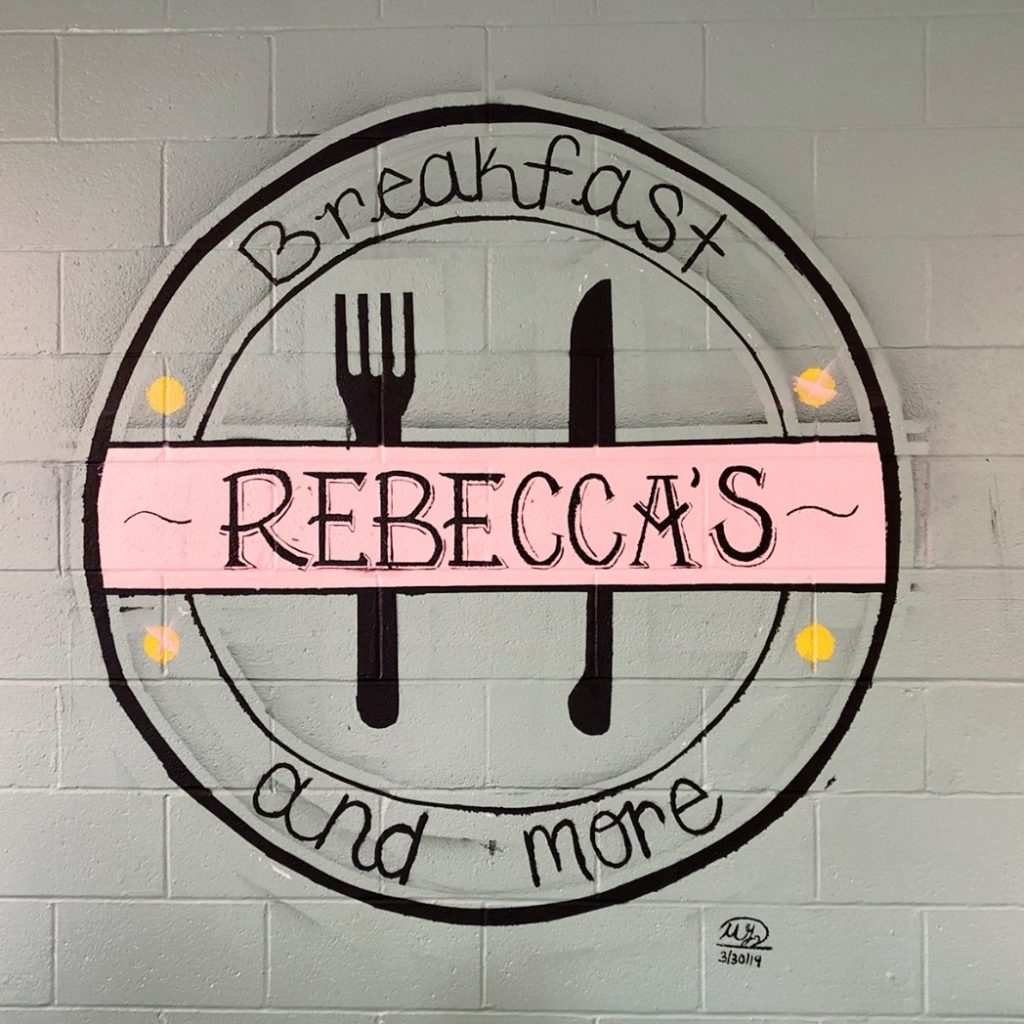
Last night, we decided that for our final field day, we wanted to write our last day blog post all together. This trip was not only an amazing, immersive learning experience, but we found ourselves relying on each other as a team, and understanding each other in different ways. Our trip was a successful one, and we are so grateful to have had this experience.
After scrambling to pack our bags and get ready for the cold temperatures today, we met Don, Ray, and Socks in the parking lot and drove with them to Rebecca’s restaurant. There, we ate amazing breakfast tacos and waffles while discussing our plan for the final field day, and talking about our favorite moments of the trip so far.
After breakfast, we loaded up in the trucks and drove out to a ranch our team has not yet searched to start our last field day. Due to hunting on the ranch, we were constricted to a four hour searching window before we had to be off of the property.
– Frankey
On our last day, our goal was to cover part of a fenceline within a 2,300 acre ranch. The fence line seperates two ranches. On the other side is the ranch we wanted to search on day one but could not because of hunting. Because the brush along the fence was so thick, it was important to inspect just inside the tree line as that is where people would find respite from the openness of the two-track that travels the fence line.
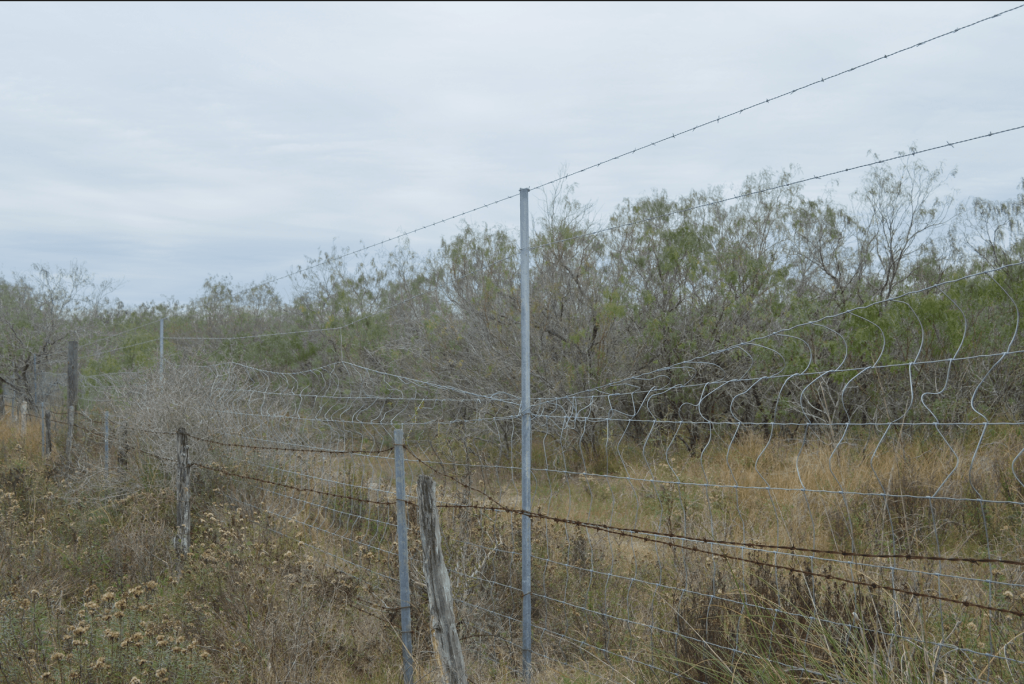
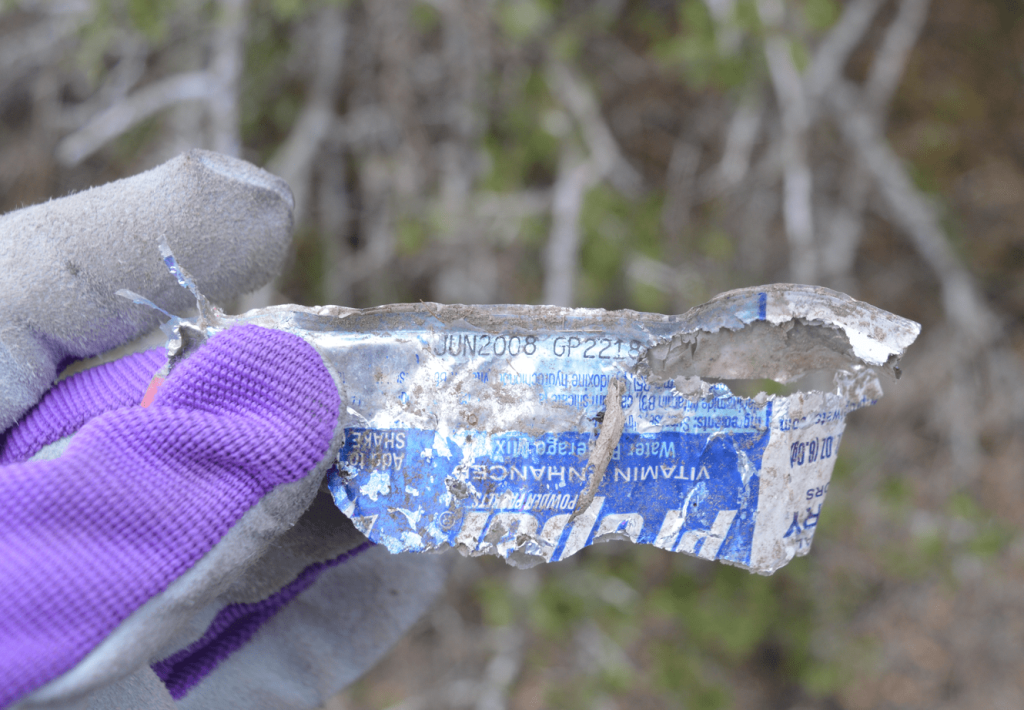
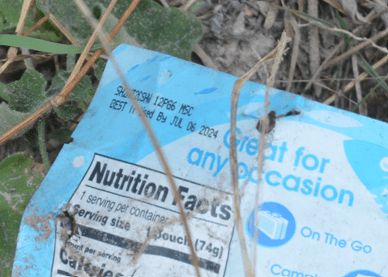
One thing we noticed was the state of the fence itself. Because they are expensive to repair, the evidence of migrants climbing them and places that are popular crossing points are extremely evident. When looking for an active path that migrants are using, examining expiration dates on foods and the state of the artifacts is essential. For example, today we found several food and drink containers, one that expired in 2008, another that expired in 2024. We also found completely rusted cans alongside newer cans.
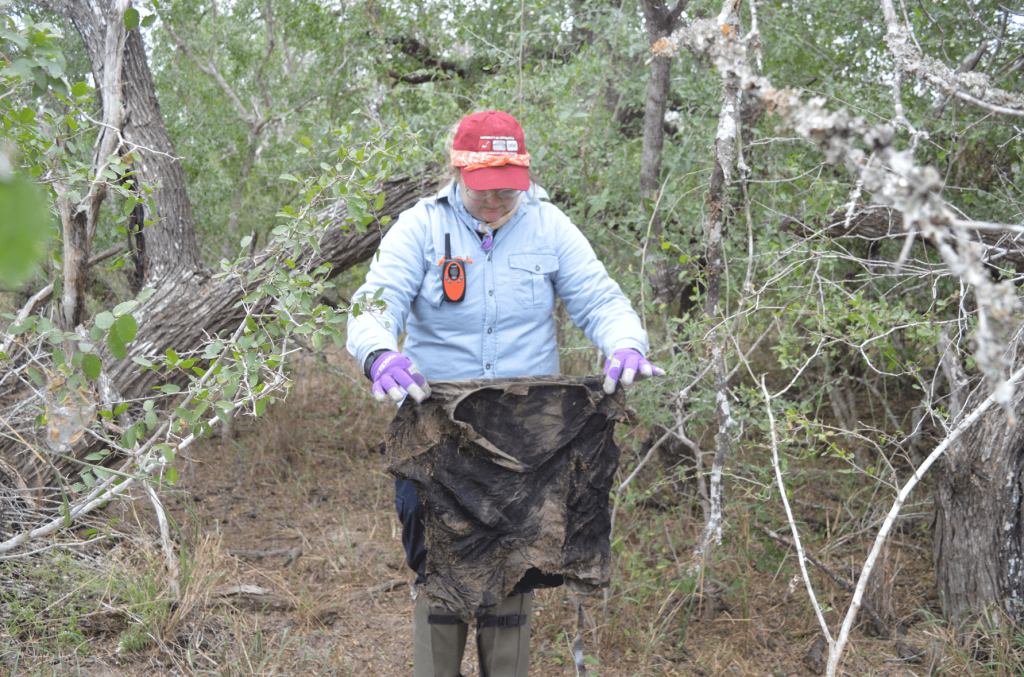
Because of these finds we know that this is and has been a relatively active path and this will be helpful for Don’s future searches. Finding food and drink containers is one thing, but we also uncovered multiple items of clothing. From a woman’s blouse and an army jacket, to a newer looking pair of boots, the similarities between ourselves and the migrants who walked these paths before us becomes clear. It becomes prominent in my reflections personally to think of what I would leave behind if I were in that position. My favorite sweatshirt or my most comfortable tennis shoes? What would cause me to leave those behind? I cannot consider these things without putting myself in their shoes and I only feel more drive to assist and compassion for their situation.
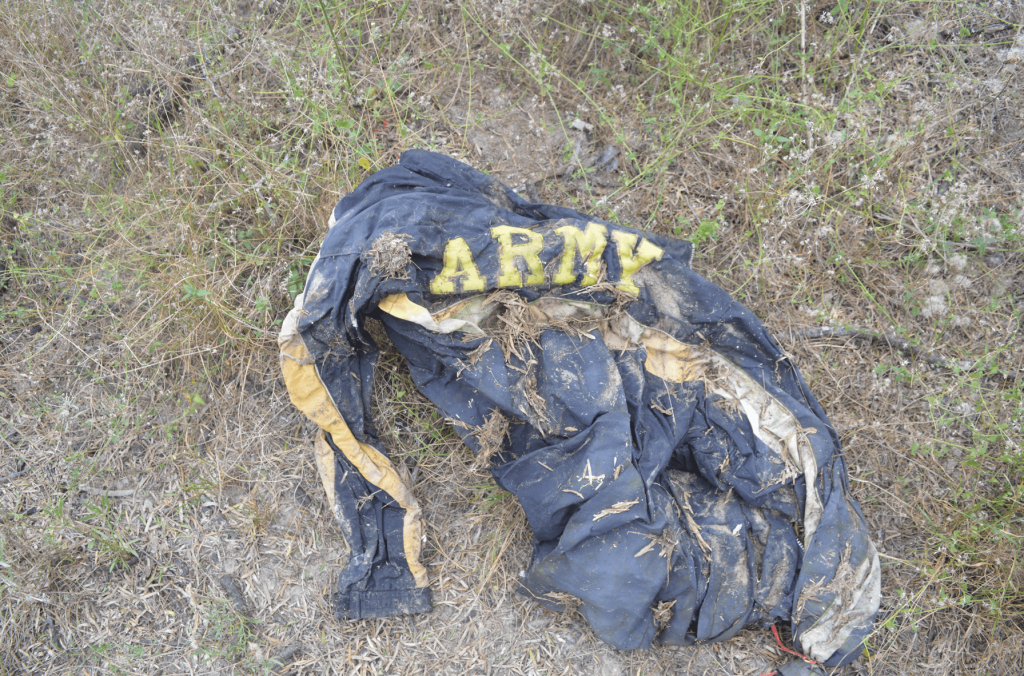
This week we have experienced only part of the physical hardships they endure, barely in their shoes, but enough to know that their journey deserves to be shared. I cannot think of a better group to have gone through this with and that is a privilege unto itself. These individuals possess an incredible strength to go through what they go through, and when I see the pictures of the artifacts they left behind I feel their strength, and my resolve to continue this work is reinforced.
– Lilly
After we left the ranch we began driving towards the morgue, which Don wanted to show us. Before we got there, however, we stopped at the shrine of Don Pedro Jaramillo, a curandero faith healer who lived near Falfurrias for most of his life.
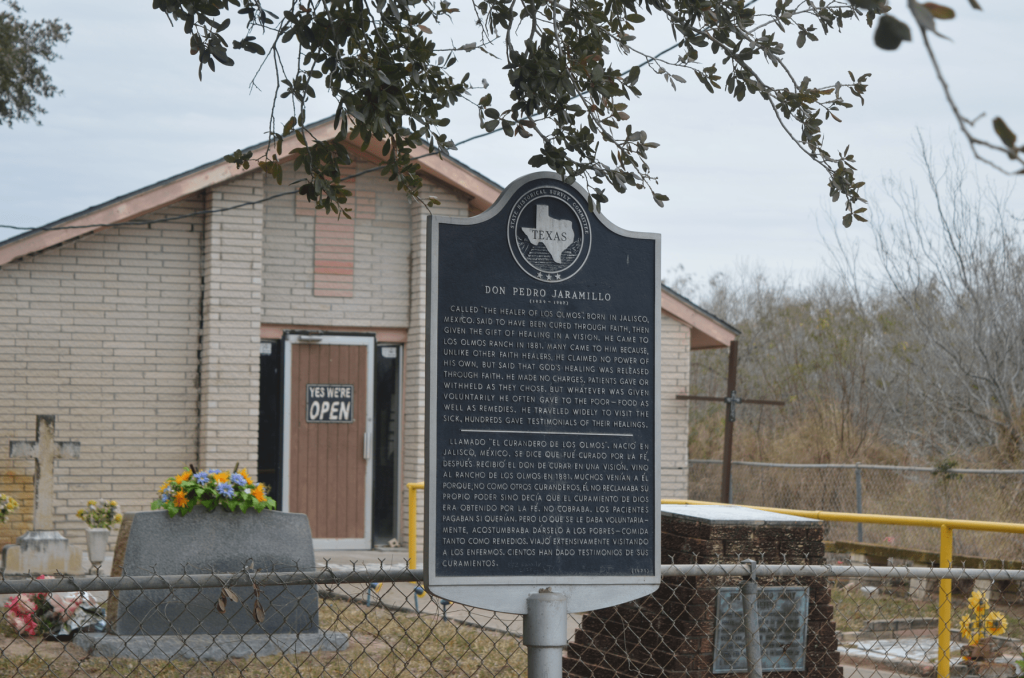
The shrine was similar to that of a church with a cemetery around it, but the real beauty came when we stepped inside the small chapel and came face-to-face with the legacy of Don Pedrito. A small, quaint room, filled with statues of Don Pedrito and Jesus, photos of loved ones who needed healing, a space for people to leave pictures of soldiers, and a small area set for candle lighting. Various kneeling pews were also scattered about the room, for use of any who wanted to, or needed to.
We had been laughing and joking on our way over, though when we entered the shrine it felt like everyone was quiet, likely out of respect for the area that we were in. It was comfortable, not a sad place, but rather a place of remembrance and further contemplation. I said a small prayer in my head before leaving, but who I was praying for I am still not certain, perhaps for the team, perhaps for the migrants, perhaps for Don Pedrito himself.
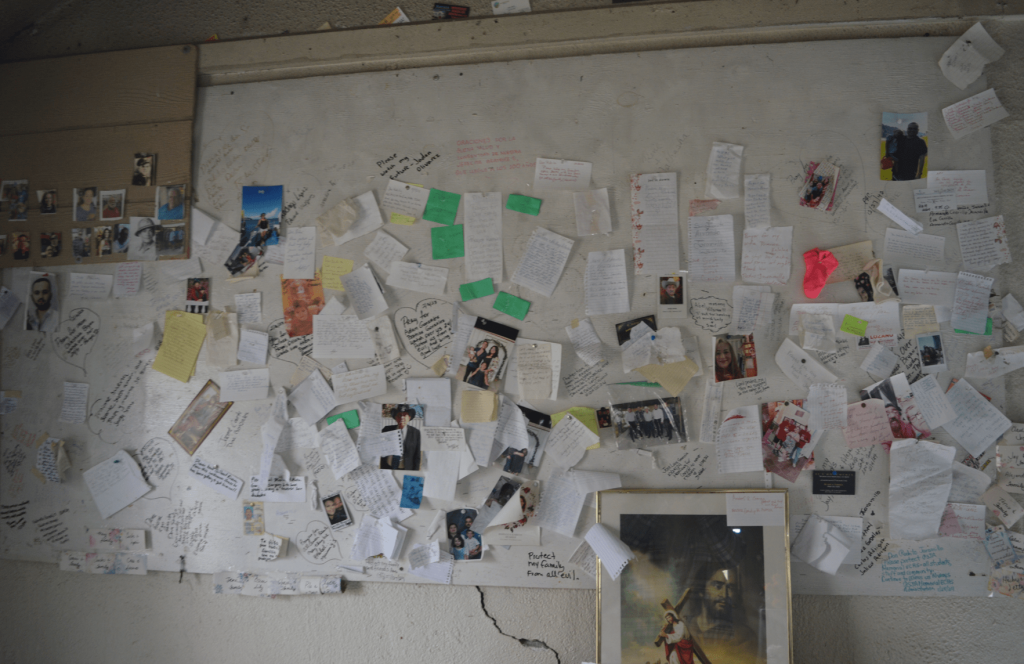
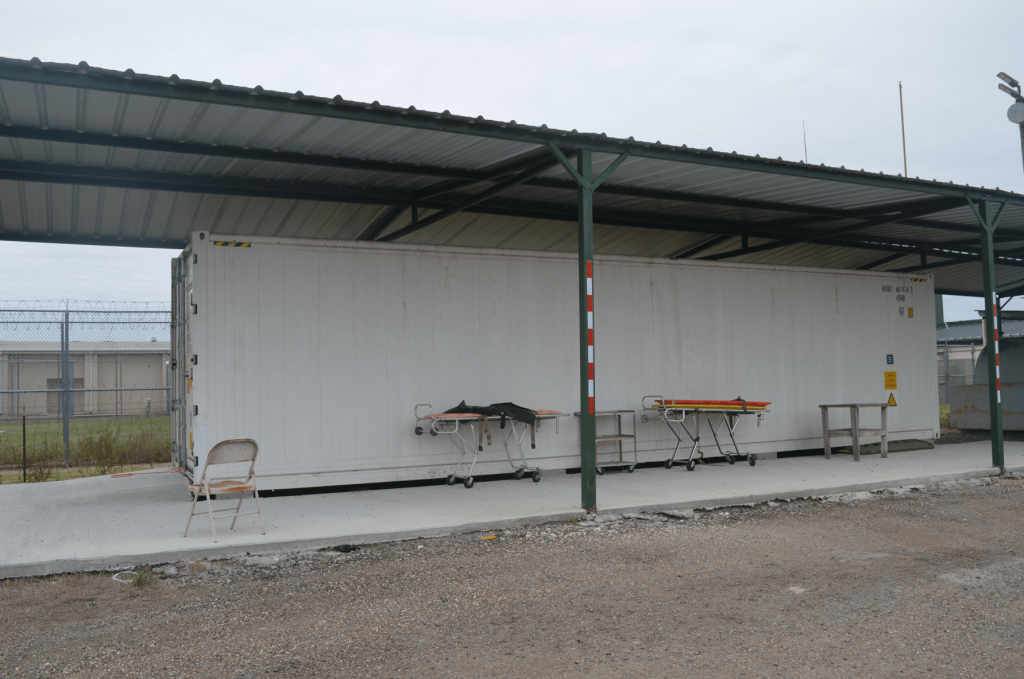
After we left the shrine we headed straight to the morgue, little more than a temperature-controlled shipping container, a far cry from the morgues that we are used to both in Indiana as well as in our hometowns. But, as it was explained to us, this container is actually a luxury for areas like this: smaller counties currently dealing with large-scale caseloads.
As we stood before the container, just after visiting the shrine, I was struck by how different yet connected the two felt. Both served as resting places: one, a permanent site lovingly adorned by those who remembered him; the other, a temporary shelter for unnamed individuals still awaiting their identities for remembrance. Despite their contrasting purposes, they were located just minutes apart.
– Makenna
Back at our hotel, we were able to start packing our luggage. We piled all our leftover snacks to give Don and Ray and determined which animal bone souvenirs from the field we could cram into our suitcases. We piled in the car and made our last trip to our beloved HEB. We grabbed some side dishes, dessert, and Fritos for our homemade dinner with Don and Ray at La Copa North Ranch (I also purchased some Dramamine to prepare for our flights back home to Indiana tomorrow).
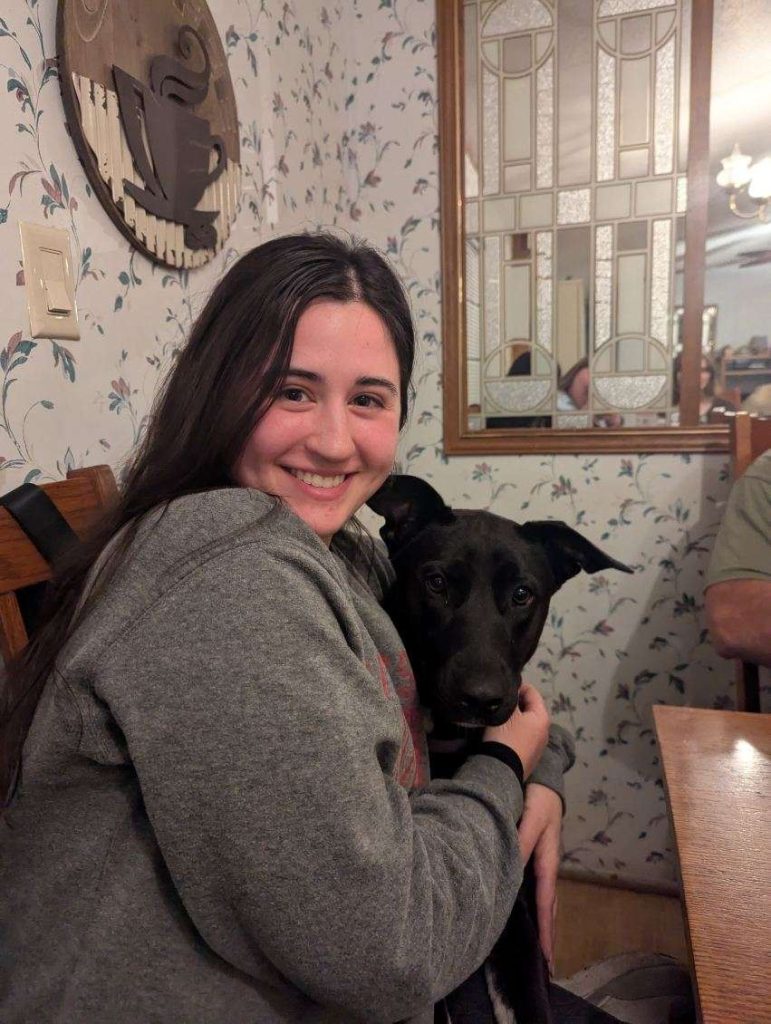
Don met us at the gate of La Copa to unlock it and we made our way inside ready for a classic Texas meal: Frito Pie and cornbread. Here we were able to catch a glimpse of Don and Ray in civilian clothes and it felt odd to see them out of their usual tan gear. Socks greeted us with jumps and plenty of kisses as we entered the trailer where Don and Ray stay.
The trip was nearing its end but we all felt like it only just began. All together for the last time, we reflected on our trip. What do we wish we had brought? What are things we learned? What memories will we never forget?
Listening to and laughing with Don, Ray, and my teammates has filled me with such joy and emotion. This trip has been absolutely life changing and I couldn’t have asked for a better group of people to share this experience with.
– Chastidy
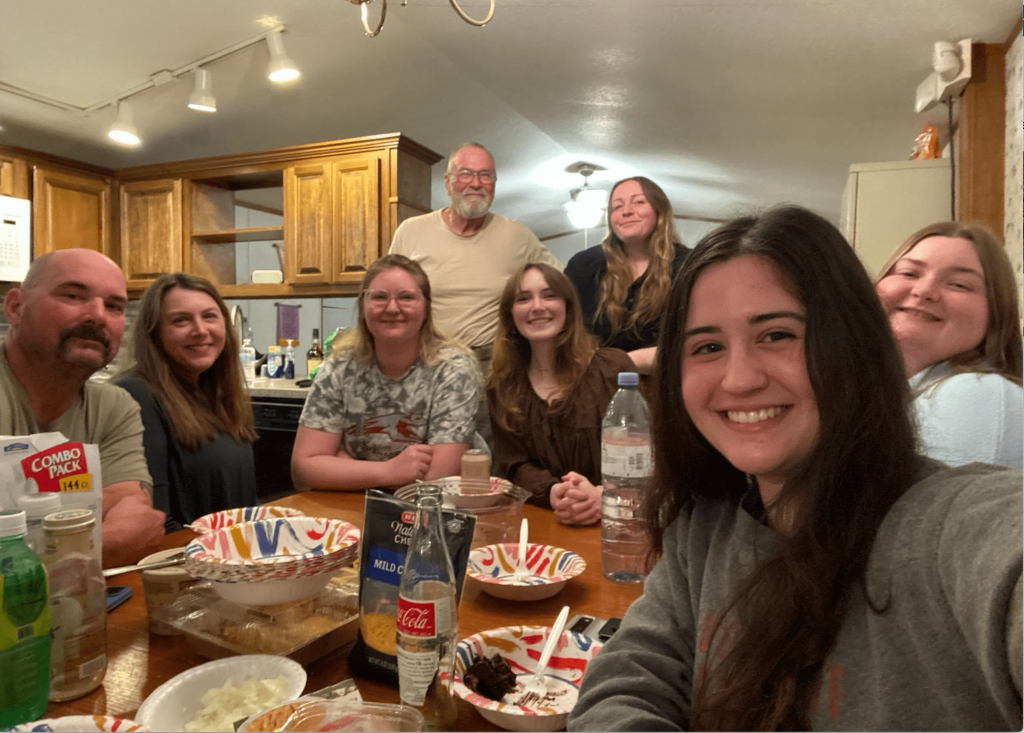
As we said our goodbyes and hugged at the edge of the ranch, we all held back tears. Even though we can’t be here all the time, this trip will stay with us forever.
Thank you to all of our faithful readers and wonderfully generous sponsors, donors, and supporters of the Beyond Borders Team.
Thank you to Deputy Sheriff Don White.
Thank you to Paramedic Ray Gregory.
Thank you to our wonderful advisors, Dr Krista Latham and Dr Amandine Eriksen.
Thank you Falfurrius, TX.
Until next time…
